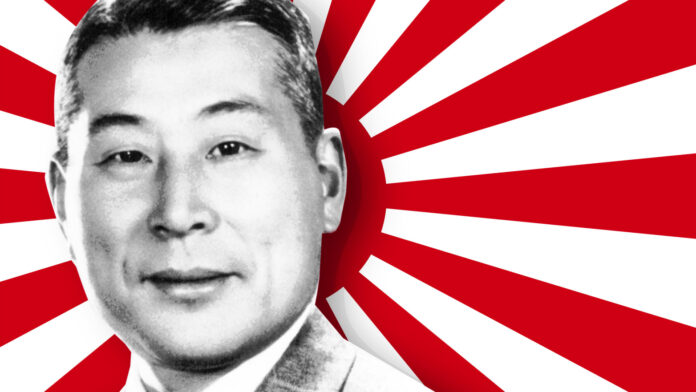In recent years, the late Japanese diplomat Chiune Sugihara has been widely honored for helping to save thousands of Jews from the Holocaust, including the students and rabbinic faculty of the Mir Yeshiva. But that legacy of rescue has come under attack by an Israeli professor who claims that recognition of Sugihara was the result of a secret plan of Yad Vashem and the Israeli government to curry favor with Japan.
Ordinarily, such conspiracy theories would not attract serious attention, but the attack on Sugihara by Professor Rotem Kowner was published in America’s leading scholarly journal of history, the American Historical Review.
A Chance Encounter
In the late 1920s, at the beginning of his diplomatic career, Sugihara (1900-1986) was assigned to the Japanese legation in Harbin, in the northern Chinese district of Manchuria. It is possible that this was where he had his first interactions with Jews since Harbin was then home to some 15,000 Jewish refugees who had fled from Russia.
In 1939, Sugihara was appointed vice consul at the Japanese Consulate in Kaunas (Kovno), Lithuania. Thousands of Jewish refugees were streaming into Lithuania from neighboring Poland, which the Germans had recently occupied. Both Polish and Lithuanian Jews desperately sought visas so that they could leave Lithuania before the Germans or the Soviets invaded—which both would soon do.
Hillel Levine, PhD, a Boston University scholar who has played a major role in bringing Sugihara’s efforts to public attention, wrote in his book In Search of Sugihara about an incident that may have influenced the diplomat to begin aiding Jewish refugees.
According to Professor Levine, a chance encounter in a local food store led to Sugihara attending a Lithuanian Jewish family’s Chanukah party, his first such experience. Levine writes that the Japanese diplomat and his wife were fascinated and charmed by the warm atmosphere, ample food and lively singing at the party.
Among the guests were some recently arrived Polish refugees, whose remarks about their circumstances attracted Sugihara’s sympathetic attention. When they subsequently contacted Sugihara to request visas to Japanese territory, it set the diplomat on the path to assisting Jewish refugees actively—even in defiance of his own government’s regulations.
The Price He Paid
Tokyo’s rules included strict administrative and financial criteria for granting visas. But Sugihara distributed visas to virtually anyone who requested them, and this eventually totaled more than 2,000 Jewish refugees. Some sources estimate that the number of people he helped was much higher since he issued many “family visas,” which permitted groups of people to leave on a single visa.
To read more, subscribe to Ami





















